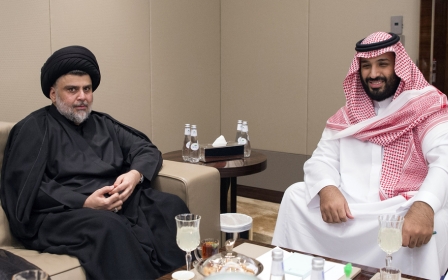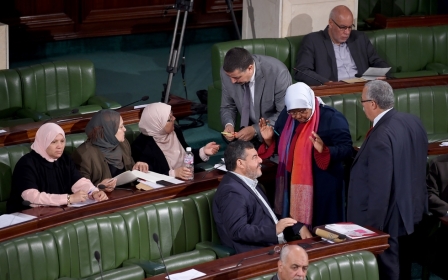Saudi anti-guardianship activist freed from jail after 15 weeks

A prominent Saudi activist, who was jailed after leaving her male guardians, has been freed following more than 100 days in detention, rights campaigners confirmed on Monday, with some praising her efforts to end the "enslaving" of Saudi women.
They said the release of Maryam al-Otaibi would give hope to others fighting to end Saudi Arabia's guardianship rules, which require women to seek male permission for many activities.
A woman's guardian can prevent her from traveling, marrying, studying and working, and can veto medical procedures.
Al-Otaibi, who is part of a large campaign against Saudi guardianship rules, is prominent on social media, posting under a popular hashtag #IAmMyOwnGuardian.
She had fled her home after reportedly facing abuse from her father and brother, and was arrested in April after her father reported her absence, according to the Gulf Center for Human Rights (GCHR).
Activists described her release as a victory for Saudi women and said it was significant she had been freed without a male guardian, which is rare in the conservative kingdom.
"What she did was very important because she gave hope really to (Saudi) girls to speak up - she paid a really high price, but I know the price she paid won't go in vain," Saudi rights campaigner Manal al-Sharif said by phone from Australia.
Al-Sharif said she had been in contact with al-Otaibi and that the campaigner was now staying with her sister in Riyadh.
"Maryam al-Otaibi (campaigned) with her real name, her real face, her real identity ... that was huge. This encourages more and more girls to speak up and use their real identity ... That is the only way to break the cycle of enslaving Saudi women," al-Sharif added.
Following her release on Sunday, al-Otaibi tweeted with an Arabic hashtag that translates to "Maryam is free without a guardian".
Saudi activists cheered her on social media with the same hashtag.
Earlier this year, King Salman issued an order allowing women to access government services such as education and healthcare without the consent of a guardian.
Saudi Arabia is one of the world's most gender-segregated nations, where women cannot drive.
Khalid Ibrahim, head of the GCHR based in Beirut, praised al-Otaibi's commitment to ending the guardianship rules, which he said prevented women from forging their own future.
"I welcome her release, but I believe we still have a lot to do to end the guardianship system," he said.
This article was written by Heba Kanso, at the Thomson Reuters Foundation.
Middle East Eye propose une couverture et une analyse indépendantes et incomparables du Moyen-Orient, de l’Afrique du Nord et d’autres régions du monde. Pour en savoir plus sur la reprise de ce contenu et les frais qui s’appliquent, veuillez remplir ce formulaire [en anglais]. Pour en savoir plus sur MEE, cliquez ici [en anglais].




